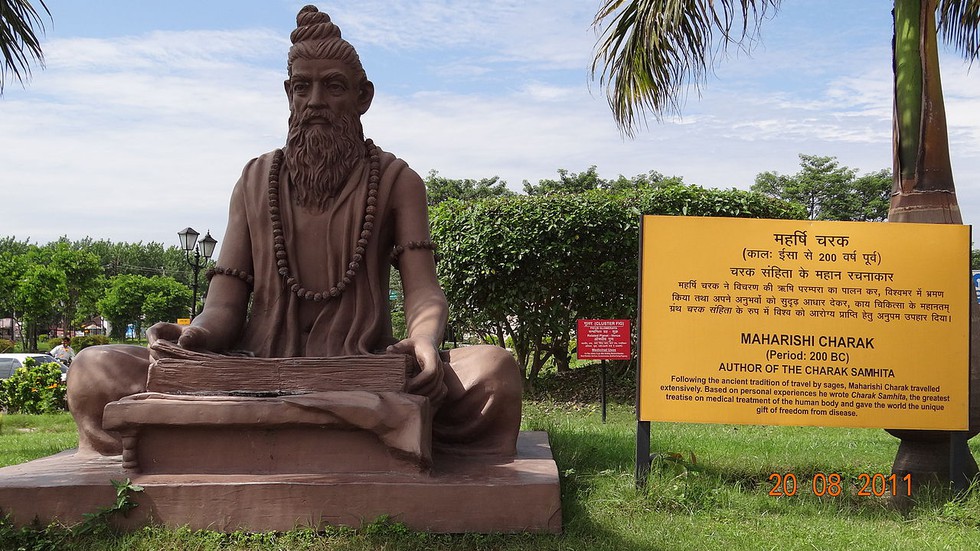About Charaka and Charaka Samhita
- Charaka, a court physician during the Kushan period, is considered the Father of Medicine in India.
- He revised the ancient Agnivesha Samhita into what became the Charaka Samhita, a foundational text of Ayurveda.
- Charaka Samhita covers topics such as physiology, diagnosis, prevention, and internal medicine.
- The text is part of the Bṛhat-Trayi (Great Trilogy) of Ayurveda, alongside the Sushruta Samhita and Ashtanga Hridaya.
- The Charaka Samhita was later expanded by Dṛḍhabala, making it an encyclopaedic treatise.
- Charaka emphasised ethics in medicine, highlighting the importance of physician conduct, diet, and preventive care.
- It remained authoritative for over two millennia, and was translated into Arabic, Latin, and other foreign languages, showing its global medical relevance.
About Sushruta
- Sushruta, dating back to the 7th century BCE, is revered as the Father of Surgery and possibly the world’s first documented surgeon.
- He authored the Sushruta Samhita, which elaborates on over 300 surgical procedures, 120 surgical instruments, and various types of fractures and dislocations.
- Innovations include rhinoplasty (nasal reconstruction), skin grafting, cataract surgery, and caesarean sections.
- The Sushruta Samhita also integrates anatomical knowledge, surgical training, patient care, hygiene, and scientific observation.
- Sushruta’s teachings display principles of evidence-based medicine, centuries before modern systems emerged.
